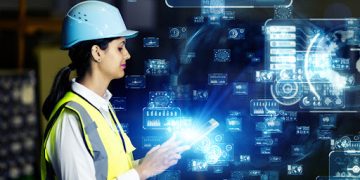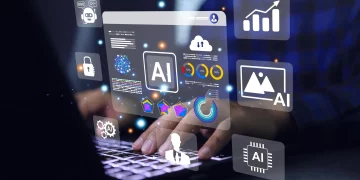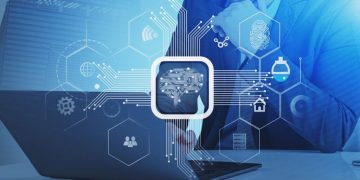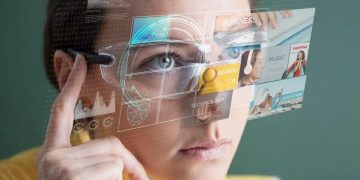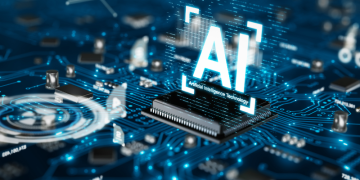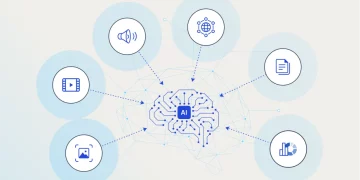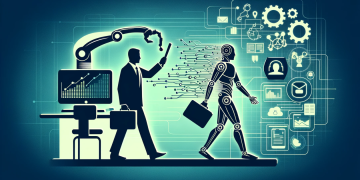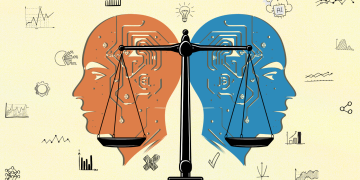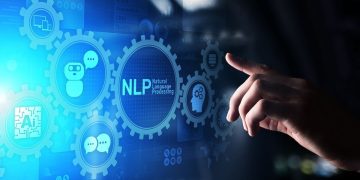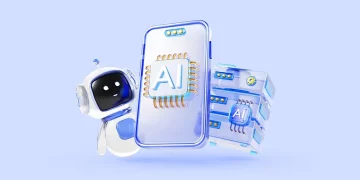The rapid advancement of artificial intelligence (AI) is driving profound changes across every sector, and its impact on the job market is one of the most widely discussed and debated aspects of this technological evolution. As AI continues to develop, it is transforming how work is done, reshaping industries, and driving the need for new skills and ways of thinking about employment. This article explores how AI is reshaping job markets, the skills required for future employment, and how individuals and organizations can prepare for the next industrial revolution.
The Changing Landscape of Work: How AI is Reshaping Job Markets
The impact of AI on the future of work is multifaceted. While AI has the potential to automate many routine and repetitive tasks, it also has the power to augment human capabilities and create new opportunities for innovation. The rise of AI is expected to affect nearly every aspect of the workforce, from manual labor to knowledge-based professions. Understanding how AI is reshaping industries and job markets is crucial for predicting future trends and preparing for new career opportunities.
One of the most significant effects of AI on the job market is automation. Routine tasks that were once performed by humans are now increasingly being handled by AI and robotics. For example, jobs in manufacturing, logistics, and administrative support have been heavily impacted by automation. AI systems can perform tasks such as sorting inventory, processing documents, and managing supply chains with greater speed and accuracy than human workers.
However, automation does not necessarily equate to job loss. AI can also create new job roles and industries that were previously unimaginable. While certain types of work may become obsolete, other areas will see a surge in demand for human expertise, particularly in fields like AI development, data science, machine learning, and cybersecurity.
Furthermore, AI is transforming traditional roles by enhancing the capabilities of workers. For example, doctors, lawyers, and financial analysts are increasingly relying on AI tools to assist with decision-making, diagnostics, and analysis. These tools enable professionals to make more informed decisions faster and more accurately, allowing them to focus on higher-level tasks that require human judgment, creativity, and empathy.
Skills for the Future Workforce
As AI continues to shape the job market, it is critical for individuals to acquire new skills to remain competitive and adaptable. In the future, workers will need to develop a combination of technical and soft skills to thrive in an AI-driven world.
1. Technical Skills:
The rise of AI will increase demand for workers with technical expertise, particularly in fields related to computer science, data analysis, and machine learning. Some of the key technical skills that will be in demand include:
- Programming and Coding: Knowledge of programming languages such as Python, Java, and C++ is essential for developing and maintaining AI systems. Aspiring professionals in fields like software engineering, data science, and machine learning should prioritize learning coding skills to stay ahead in an AI-powered job market.
- Machine Learning and AI Development: As AI technology continues to evolve, there will be a growing need for professionals who can develop, implement, and optimize AI algorithms. Skills in machine learning, deep learning, neural networks, and natural language processing (NLP) will be crucial for roles in AI development and research.
- Data Science and Analytics: AI relies heavily on data, and professionals with expertise in data analysis and data science will play a central role in training and improving AI models. Data scientists, analysts, and engineers will be responsible for collecting, organizing, and interpreting the vast amounts of data AI systems require to function.
- Cybersecurity: As AI becomes more integrated into business operations and daily life, cybersecurity will become increasingly important. AI-powered tools are both a target and a tool for cybercriminals, and professionals with expertise in AI-powered security systems will be needed to protect businesses and individuals from cyber threats.
- Automation and Robotics: Knowledge of automation technologies and robotics will be essential for professionals working in industries where automation is transforming traditional roles. Engineers and technicians with expertise in robotics, automation systems, and AI-driven manufacturing processes will be in high demand.
2. Soft Skills:
While technical skills are vital, soft skills will remain crucial in the future workforce. As AI takes over repetitive tasks, human workers will need to focus on areas that AI cannot replicate, such as creativity, problem-solving, and interpersonal communication. Some of the key soft skills that will be in demand include:
- Critical Thinking and Problem-Solving: AI is designed to analyze data and recognize patterns, but human intelligence is necessary to interpret complex scenarios and make decisions in uncertain situations. Workers who can think critically, analyze problems from multiple perspectives, and devise innovative solutions will remain valuable assets in an AI-powered workplace.
- Emotional Intelligence: AI cannot replicate human emotions, empathy, or social understanding. As workplaces become more collaborative and diverse, individuals with strong emotional intelligence will be needed to navigate interpersonal dynamics, manage teams, and build meaningful relationships with clients and colleagues.
- Creativity and Innovation: While AI can generate ideas based on patterns, it lacks the human capacity for original thought and creativity. In fields such as marketing, design, and entertainment, individuals who can think creatively and come up with novel ideas will continue to thrive, as AI will primarily be used as a tool to enhance human creativity.
- Collaboration and Communication: AI can assist with tasks, but it cannot replace the need for effective communication and teamwork. Workers will need to be able to collaborate with both AI tools and human colleagues, sharing ideas, feedback, and solutions in a way that maximizes the potential of both.
- Adaptability and Lifelong Learning: The rapid pace of technological change means that workers must be adaptable and open to continuous learning. The ability to embrace new technologies and continuously update one’s skills will be crucial for staying relevant in the workforce.

The Role of Education and Training
To prepare the next generation of workers for the AI-driven economy, education systems must adapt to the changing needs of the job market. While traditional education pathways will still play a significant role, new approaches to learning will be necessary to equip individuals with the skills required for future employment.
- STEM Education: Emphasizing science, technology, engineering, and mathematics (STEM) education is essential for building a workforce capable of meeting the demands of AI and automation. STEM-focused curriculums can foster problem-solving, critical thinking, and technical skills that are vital for working with AI technologies.
- Upskilling and Reskilling: As many existing workers face the risk of their jobs being automated, upskilling and reskilling programs will be essential for helping individuals transition to new roles. Online courses, certification programs, and boot camps can provide workers with the necessary skills to stay competitive in an AI-driven job market.
- Collaboration Between Industry and Academia: Strong collaboration between universities, training programs, and industries is necessary to ensure that the skills taught in educational institutions align with real-world job requirements. This partnership can help bridge the gap between academic learning and industry needs.
- AI Literacy for All: In addition to training technical experts, there is a need to promote AI literacy across the entire workforce. Workers in all industries, even those outside of tech, will need to understand the basics of AI to work effectively with AI-powered tools and systems.
Preparing Organizations for the Future Workforce
Organizations must also adapt to the changing workforce and integrate AI into their operations in a way that enhances both employee productivity and job satisfaction. Businesses that effectively integrate AI will gain a competitive advantage, but they will also face challenges related to workforce management and the adoption of new technologies.
- Reshaping Job Roles: As AI becomes integrated into various business functions, organizations will need to reassess job roles and responsibilities. Some jobs may become obsolete, while others will evolve. Companies must invest in retraining programs to ensure that employees can transition to new roles and work effectively alongside AI systems.
- Building a Culture of Innovation: Companies should foster a culture that encourages innovation and adaptability. Workers should feel supported in embracing AI tools and using them to improve efficiency, creativity, and decision-making.
- Ethical Implementation of AI: Companies must be mindful of the ethical implications of AI in the workplace. AI systems should be implemented in a way that respects privacy, promotes fairness, and mitigates the risk of bias. Businesses should also consider the potential societal impacts of AI and ensure that workers are treated fairly during the transition to an AI-powered workforce.
Conclusion
The next industrial revolution is upon us, driven by the rapid advancement of AI technologies. While AI will undoubtedly disrupt traditional job markets, it also presents immense opportunities for innovation, job creation, and transformation. To prepare for this AI-driven future, individuals must acquire a combination of technical and soft skills, while organizations and educational institutions must work together to build a workforce that is adaptable, innovative, and prepared for the challenges and opportunities of the AI age. By embracing AI as a tool for empowerment rather than displacement, we can ensure that the future of work is one that benefits everyone.

